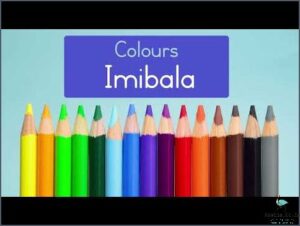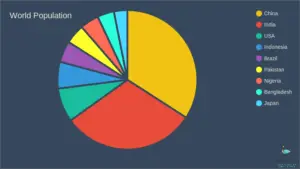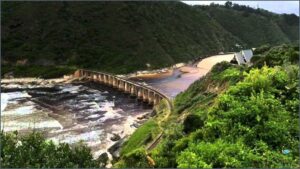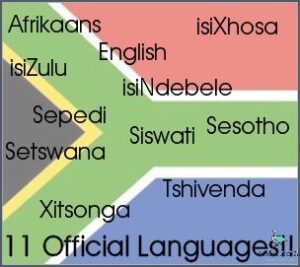
Botswana is a small landlocked country in the Southern African region. It has a population of over two million people and is famous for its diverse wildlife, national parks and its diamond industry. The official languages of Botswana are English and Setswana. English is widely used in the public sector, and Setswana is the primary language spoken by the majority of the population.
English was introduced to Botswana by the British and is used by the government to conduct official business. It is also used in other public domains such as the media and education. Setswana is the mother tongue of the Tswana people, the majority ethnic group in Botswana. It is the most commonly spoken language in the country, and is spoken by over 80% of the population.
The government of Botswana has taken steps to promote the use of Setswana, such as making it the language of instruction in primary schools. However, English is still the language of instruction for secondary and tertiary education.
Both English and Setswana are recognized as official languages by the government, and are used for communication in official documents and for official ceremonies. Botswana also recognizes other languages such as Kalanga, Sekgalagadi and Ndebe
Contents
Official Languages Of Botswana
Botswana is a multilingual country with English being the official language of the country. Other languages spoken in Botswana include Setswana, Afrikaans, Kalanga, Ndebele, and various other African languages. Setswana is the mother tongue of the majority of the population and is used in the educational system as well as in business. English is widely used in the government and in the media, while Afrikaans is spoken by a small minority of the population. Kalanga and Ndebele are spoken mainly in the eastern parts of the country while other African languages are spoken in the north. All these languages are given official recognition by the government of Botswana.
History of Botswana’s Official Languages
Botswana is a landlocked country in southern Africa with a population of just over two million people. It is a multicultural country, with a wide variety of languages spoken by its citizens. The official languages of Botswana are English and Setswana, with English being the main language used in business, government and education.
Setswana is a Bantu language, part of the Niger-Congo language family, and is the most widely spoken language in Botswana. It is the language of the majority of the population and is the language of instruction in most primary and secondary schools. It is also the language of the national newspapers, radio and television broadcasts.

The history of Setswana in Botswana dates back centuries, with its roots in the Sotho-Tswana language family. It is believed that Setswana was first spoken in Botswana by the Tswana people, a Bantu-speaking ethnic group. The Tswana people migrated to the region centuries ago and brought their language with them.
The arrival of the British in the 19th century had a significant impact on the history of Setswana. The British rulers imposed English as the official language of the country, relegating Setswana to a second-class status. Despite this, Setswana continued to be the language of the majority of the population.
In the 1950s, the Botswana government began to recognize the importance of Setswana and the need to preserve it. Setswana was declared the official language of Botswana in the 1960s and it has since been established as the national language.
Today, Setswana is the language of instruction in most primary and secondary schools and is widely spoken throughout the country. English is also used in business, government, and education, and is often the language of choice in international relations.
Despite the official status of English and Setswana, there are a number of other languages spoken in Botswana. These include Kalanga, Ndebele, Xhosa, and several San languages. These languages are not officially recognized, but they are still spoken by a significant portion of the population.
The history of Botswana’s official languages is a story of progress and preservation. Setswana has gone from a language relegated to second-class status to one of the most widely-spoken languages in the country. At the same time, English has become a language of international importance, and other languages remain an important part of the country’s cultural heritage.
Current Official Languages of Botswana
Botswana is a landlocked country in Southern Africa that is home to a host of vibrant cultures, languages and traditions. The official language of Botswana is English, but there are also several other languages that are recognized and used in the country. These languages are Setswana, Kalanga, Sekgalagadi, and Naro.
Setswana, also called Tswana, is the most widely spoken language in Botswana. It is spoken by over 70% of the population, and is the predominant language used in business and government. Setswana is a Bantu language, and is closely related to South African languages such as Sesotho, Sepedi, and Xhosa. It has a rich history and is closely tied to the country’s culture and traditions.
Kalanga is the second most widely spoken language in Botswana. It is spoken by around 10% of the population, mainly in the eastern part of the country. Kalanga is an Eastern Bantu language closely related to Shona, which is spoken in Zimbabwe. It is also closely related to Tonga, which is spoken in Zambia and Mozambique.
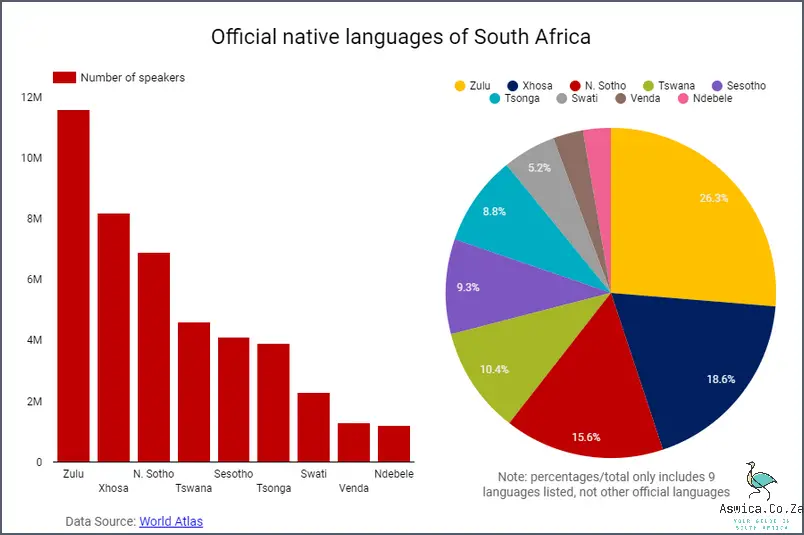
Sekgalagadi is another language that is spoken in Botswana. It is mainly spoken by the Basarwa people, who are indigenous to the Kalahari Desert. Sekgalagadi is closely related to the Khoe-Kwadi languages, which are spoken in Namibia.
Lastly, Naro is an endangered language spoken by the Naro people, an ethnic group in Botswana. It is closely related to the Southern Sotho language, and is classified as a dialect of the Sotho-Tswana language.
Overall, English is the official language of Botswana, but there are also several other languages that are recognized and used in the country. These languages include Setswana, Kalanga, Sekgalagadi, and Naro. Each of these languages is closely linked to the country’s culture and traditions, and are an important part of Botswana’s unique identity.
Language Rights of the People of Botswana
Botswana, a landlocked nation in southern Africa, is home to some of the most diverse and vibrant language communities in the world. From the traditional Setswana language to the modern English spoken by many of its citizens, the country is a melting pot of cultural and linguistic diversity. This diversity is reflected in the language rights of the people of Botswana, which include the right to use their own language and the right to access public services in their language of choice.
The official language of Botswana is Setswana, a Bantu language spoken by the majority of the population. English is also an official language and is used as a lingua franca between Botswanans of different language backgrounds. While the government of Botswana recognizes both Setswana and English as official languages, it has made efforts to promote the use of Setswana in all aspects of public life. This includes the use of Setswana in official documents, in court proceedings, and in educational institutions.
In addition to the two official languages, there are several other languages spoken in Botswana. The country is home to a variety of indigenous languages, including Kalanga, Herero, Kgalagadi, and Ndebele. There are also numerous immigrant languages, such as Afrikaans, Portuguese, and Chinese. All of these languages are recognized by the government and are protected under the Language Rights Act of 2009. This act provides for the preservation and promotion of all languages spoken in Botswana, regardless of their origin.
The Language Rights Act also provides for the right to access public services in one’s own language. This means that, regardless of the language spoken, all citizens of Botswana should have access to government services in their language of choice. This includes access to educational materials, health care, and other important services. The government of Botswana has also made efforts to ensure that all citizens, regardless of their language background, are able to participate in the political process.
The language rights of the people of Botswana are an important part of their cultural heritage, and the government has made it a priority to protect and promote these rights. By recognizing the diversity of languages spoken in the country, the government has made it possible for all citizens to access public services in their own language and to participate in the political process. This has helped to foster understanding and unity among the many different language communities that make up the nation of Botswana.
Conclusion
The Official Languages of Botswana are English and Setswana. English is the official language of government and business, and Setswana is the national language. The two languages are closely related and share many of the same terms. However, Setswana is the main language of the minority Batswana population and is used in everyday life.

